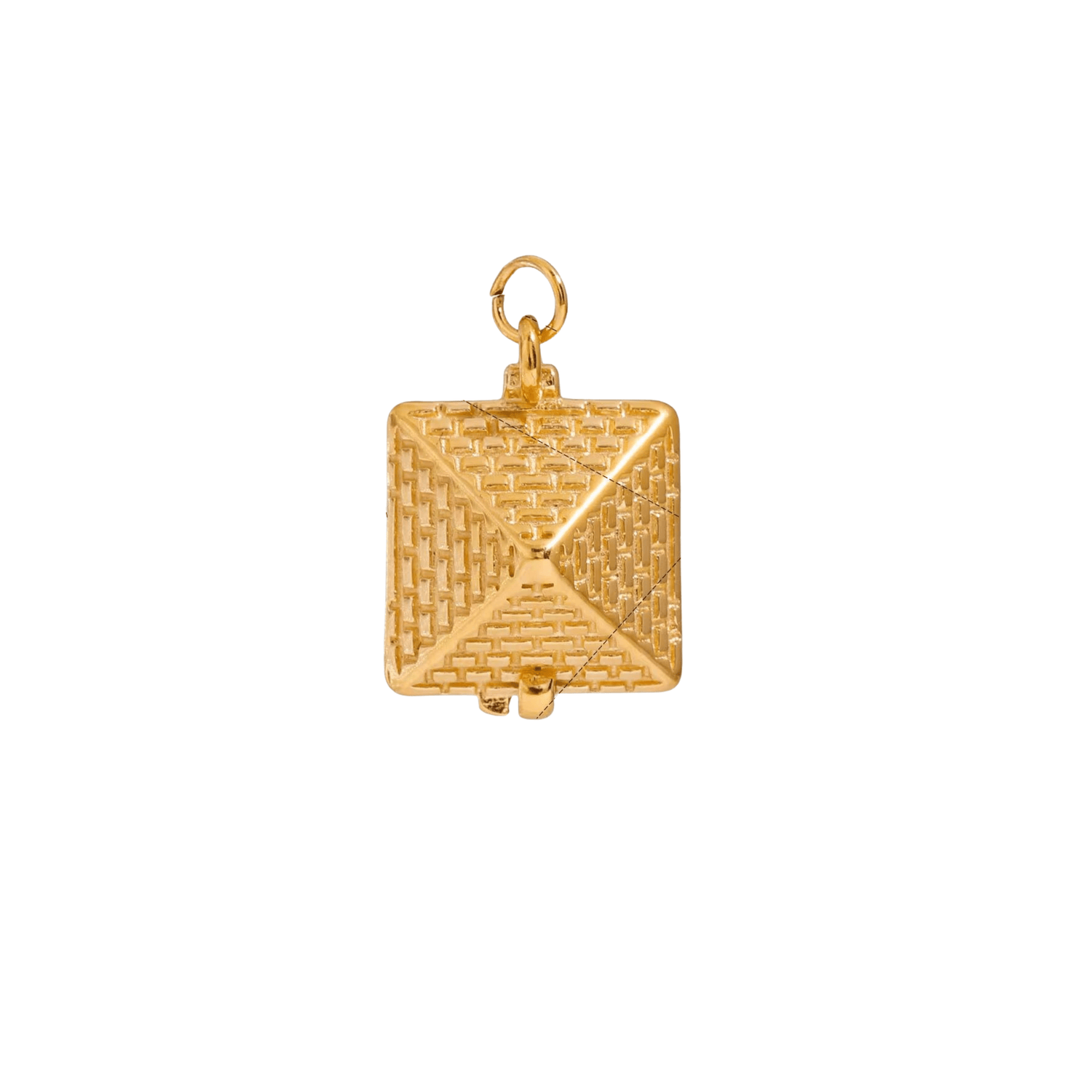
Layered Chains Adapt to Shifting Professional Demands
Share
In the vibrant tech hubs of Bengaluru, where innovation pulses through coffee-scented air and ambitious minds collide, a subtle transformation is taking place. Layered chain jewelry, traditionally seen as evening attire, is now adorning the necks and wrists of India's rising professionals. With hybrid work models and relaxed dress codes redefining office norms, these adaptable pieces symbolize a blend of sophistication and personal expression, seamlessly connecting professional duties with social engagements.
Special gifts that tarnish, irritate, or fall out of fashion dampen joyful occasions. That disappointment clouds memories meant to endure. Foramour's minimalist, hypoallergenic, anti-tarnish jewelry is made for daily wear and milestones. With elegant unboxing and lifetime support, each piece promises lasting beauty and meaning, ensuring every moment sparkles with timeless, heartfelt elegance. Shop Now!
Layered Chains Rise as India's Professionals Redefine Jewelry
The luxury jewelry sector worldwide was valued at USD 49.1 billion in 2024 and is anticipated to expand to USD 82.1 billion by 2030, achieving an annual growth rate of 8.7%. This expansion is fueled by heightened interest in sustainable and inclusive designs. The Asia Pacific region leads with a 66.6% share of global revenue in 2024, where China's market commands 66.57% of that portion. Gold remains the top material, capturing 33.1% of the market share, while rings lead in product categories. In India, the jewelry market stood at USD 85.52 billion in 2023 and is poised for a 5.7% CAGR through 2030. Fashion jewelry, including layered chains, is gaining momentum among urban millennials and Gen Z in cities like Delhi, Mumbai, and Bengaluru, who favor items that merge simplicity with individuality.
Across India's bustling cities, layered chains have emerged as essential accessories for those prizing versatility. Imagine a consultant in Gurgaon donning a refined gold chain with a discreet pendant for a daytime meeting, then enhancing it with a more ornate layer for evening events. This adaptability complements the shift toward business casual attire in hybrid environments, replacing stiff formalwear with personalized looks. Gold's prominence, with its 33.1% global share in 2024, resonates deeply in India due to its cultural significance and visual allure.
A Market Shaped by Urban Ambition and Ethical Choices
India's jewelry landscape is not merely expanding; it's undergoing a profound evolution. Professionals in tech-centric areas like Bengaluru are reshaping workplace adornments. Studies indicate a growing preference for ethically sourced and environmentally friendly jewelry, with consumers inquiring more about sustainable practices. This aligns with international patterns where eco-consciousness propels market growth. Brands such as Foramour, specializing in tailored and green designs, are ideally suited to meet this need. Their layered chains, frequently made from recycled materials, appeal to buyers seeking elegance without ethical trade-offs.
Online retailers have responded by promoting layered chain lines suited for daily professional use. These items light, interchangeable, and adjustable serve workers requiring pieces that shift effortlessly from virtual meetings to leisure activities. In the Delhi-NCR region, for example, individuals emphasize customizable jewelry that adapts to various settings, echoing broader trends in modular and personalized accessories. The personalized jewelry market globally is valued at USD 52.47 billion in 2025, projected to reach USD 108.92 billion by 2034 at an 8.4% CAGR, with India contributing through its focus on bespoke designs.
The surge in demand reflects deeper societal changes. As more women enter the workforce, jewelry must accommodate multifaceted lives. According to recent data, the urban female labor force participation rate has risen to 25.8% in 2023-24. This demographic drives interest in versatile pieces like layered chains, which can be subtle for work yet bold for social occasions. Moreover, digital influences amplify these trends; platforms showcase styling ideas that encourage experimentation, providing cost-effective promotion for emerging brands.
Challenges in a Fast-Changing Market
However, the ascent of layered chains faces obstacles. Pricing poses a barrier, especially in smaller cities where high-end items from gold or sustainable metals may exceed budgets for average earners. Counterfeiting persists as a major concern, eroding confidence in legitimate retail channels. Reports from FICCI highlight the illicit trade's scale, valued at Rs 7,97,726 crore, including counterfeit goods that harm the jewelry sector. Additionally, in traditional industries, elaborate jewelry might be viewed as unprofessional, perpetuating a divide that requires careful brand strategies.
These challenges notwithstanding, prospects abound. The emphasis on customization aligns with evolving consumer desires, fostering innovation in adjustable designs. With women's urban employment on the rise, layered chains address their need for multifunctional accessories. Social media platforms continue to boost visibility, with influencers demonstrating creative layering techniques that captivate younger audiences. For startups in the jewelry space, this digital amplification offers an accessible route to connect with style-savvy professionals across India.
Looking deeper, the integration of technology and sustainability is reshaping the industry. Brands are exploring modular systems where chains can be reconfigured, reducing waste and enhancing longevity. This approach not only meets environmental expectations but also caters to the practical demands of busy lifestyles. In cities like Mumbai and Delhi, where fashion intersects with corporate culture, such innovations are particularly resonant, allowing individuals to curate wardrobes that evolve with their roles.
The Future of Professional Jewelry
As India's professional landscape transforms, so do the adornments that accompany it. Experts foresee layered chains as pivotal in modular jewelry collections, enabling adaptation to dynamic personal and career identities. For entities like Foramour, success hinges on merging responsible sourcing with creative flair, appealing to a discerning workforce. In this vibrant Indian market, blending tradition with contemporary drive, layered chains transcend mere decoration they embody the reimagining of professional identity.
The trajectory points to sustained growth, with projections underscoring the sector's resilience. By prioritizing ethical practices and versatility, the industry can navigate challenges while capitalizing on opportunities. Ultimately, as professionals seek pieces that reflect their ambitions and values, layered chains stand poised to define the next era of workplace elegance in India.
Frequently Asked Questions
Why are layered chains becoming popular among Indian professionals?
Layered chains are gaining popularity among Indian professionals because they offer versatility that complements hybrid work models and relaxed dress codes. These adaptable pieces allow professionals to seamlessly transition from daytime meetings to evening events by adding or adjusting layers. With India's urban female workforce participation rising to 25.8% in 2023-24, working professionals need multifunctional accessories that can be subtle for work yet bold for social occasions.
What makes layered chain jewelry suitable for modern workplace environments?
Layered chains are ideal for modern workplaces because they're lightweight, interchangeable, and adjustable, making them perfect for professionals who shift between virtual meetings and leisure activities. They complement the trend toward business casual attire in hybrid work environments, replacing stiff formal wear with personalized looks. The modular nature of these pieces allows individuals to customize their appearance based on different professional settings throughout the day.
Are sustainable and ethically sourced layered chains available in the Indian market?
Yes, there's a growing demand for ethically sourced and environmentally friendly layered chains in India, with consumers increasingly inquiring about sustainable practices. Brands like Foramour specialize in tailored designs using recycled materials, appealing to buyers who want elegance without ethical compromises. The industry is also exploring modular systems where chains can be reconfigured, reducing waste and enhancing longevity while meeting the environmental expectations of India's conscious consumers.
Disclaimer: The above helpful resources content contains personal opinions and experiences. The information provided is for general knowledge and does not constitute professional advice.
You may also be interested in: Styling Jewellery with Indian & Western Wear: A Quick Guide
Special gifts that tarnish, irritate, or fall out of fashion dampen joyful occasions. That disappointment clouds memories meant to endure. Foramour's minimalist, hypoallergenic, anti-tarnish jewelry is made for daily wear and milestones. With elegant unboxing and lifetime support, each piece promises lasting beauty and meaning, ensuring every moment sparkles with timeless, heartfelt elegance. Shop Now!
Powered by flareAI.co

